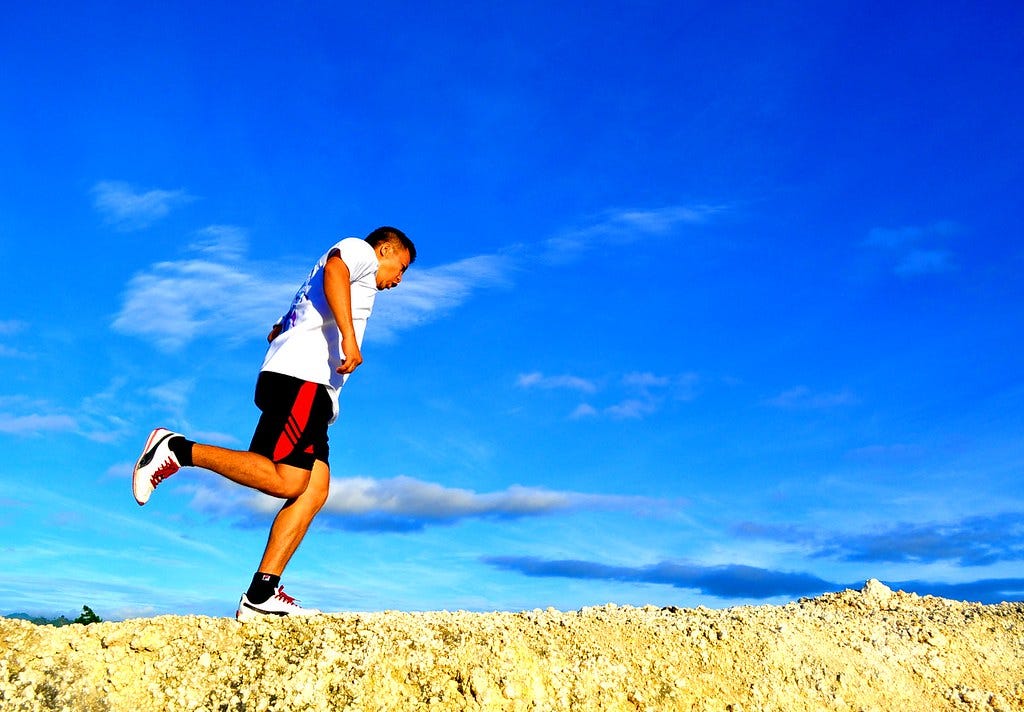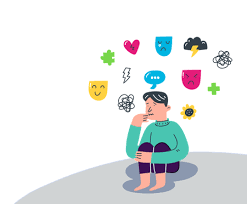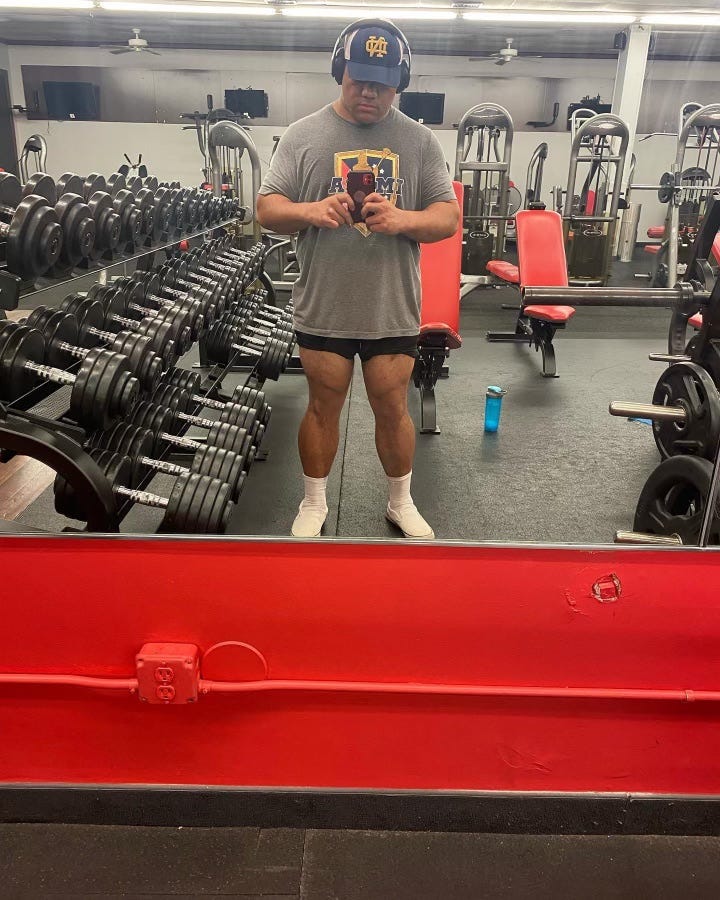
By Kaponi Vakalahi

Everyone knows that college should be one of the best ways to find your identity, further your education/athletics, make long lasting memories and friends, etc. There are some things that can sometimes stop us or distract us from looking at the bright side of experiencing the best parts of college. Whether it’s a ton of homework, being homesick, mental health reasons, or etc. I want to focus on the mental health part which should include a good majority of college students.
Mental Health is a rising issue amongst young adults, and some don’t develop symptoms until they leave their homes and enter college. Mental health includes emotional, psychological, and social well-being. It affects how we think, feel, and act. It also helps determine how we handle stress, relate to others, and make healthy choices. When our mental health is not being cared for or treated, it can be very difficult to function in everyday life, especially if you’re a college student. How do most college students deal with mental health? How do they keep functioning?

Sports at Southern Virginia University is very important to almost all the students that attend. I have asked many athletes at the school if being on a sports team has affected their mental health in a negative way. Many answered that, yes, it gives them stress, but for the most part it has helped their mental health in one way or another. I followed up their response by asking what part of the sport helps them with mental health. Basically everyone that I asked said, in one form or another, that being active whether it was practice, weight lifting, or conditioning, that being active was what helped their mental health. Maintaining good physical health helps with mental health and it has been proven to be very effective to those struggling with mental health. It’s easier for those who are on a sports team to stay active because they have the drive to stay active and show up to the weight room, practice, and conditioning. What about the students that are not on a sports team? How can they stay active in order to help with their mental health? That is why I am writing. I want to reach out to those non-students athletes who are struggling with mental health and let them know what they can do to stay active.
The reason why I chose to write about this certain topic is because I myself have struggled with some sort of mental health issues and it has been very difficult to be a college student. Without being on a sports team, it can be difficult to stay active if you yourself are not really an active person. Maintaining your physical health, like exercising, is probably one of the best ways to help with mental health stress, anxiety, and depression. Especially for a college student because most of the activities that I will list in this article that have helped me are essentially free. Before getting into the many activities and exercises that have helped me with some of the issues I had with mental health, I want to explain the benefits of physical exercise on mental health and why it’s super important.
Everyone has heard that exercise is really good for you, but how does physical exercise really help with problems with something that is mental? With the right type of physical exercise, you can really improve your mental health and one the best type of exercise is aerobic exercise. Scientifically, this is what happens when you work out or exercise.
Exercise releases endorphins. Endorphins, which are the body’s natural feel-good hormones, are helpful in reducing stress and sensations of pain, as well as promoting feelings of positivity. Think of this as the most natural and healthiest high possible. Exercise promotes growth and connections for nerve cells in the hippocampus, which is part of the brain that produces “feel good” feelings and regulates mood. This, in turn, can help alleviate depressive symptoms because increased nerve cell growth and connection improves our brain functioning and decreases the size of the hippocampus.
Other than its biological benefits, exercise serves another important function: it serves as a distraction that gets people out of their brains and into their bodies. It can help individuals focus more on the present moment rather than fixating on negative thoughts or feelings. This is called being mindful which has been shown to be effective in helping people cope with depression and anxiety. The smaller the hippocampus, the fewer depressive symptoms. Research has shown in some cases that exercise can even work as an antidepressant.
You don’t need to spend two hours everyday in the gym or exercising. Research has recommended that you should exercise 4 to 5 days a week. Everyday you do exercise, it should be 30 mins to 150 mins. This should help improve mood. Just 30 minutes of aerobic exercise, which is cardio, can help you see a difference in sleep quality each night. There are many people that say that they don’t have time, but they can at least give 10 minutes to their physical health which in return helps their mental health. This can be a simple walk in the morning around campus or around the beautiful town of Buena Vista. Though our town is very small, there are some awesome hikes around here. A recent study by the Harvard T.H Chan School of Public Health found that running for 15 minutes a day or walking for an hour reduces the risk of major depression by 26%.
Now that we know the scientific facts and ways that exercise improves mental health, you’re probably asking, “where do I start my fitness journey?” If you have never exercised before, it is best to pace yourself and not push yourself. What I mean by that is don’t run 10 miles your first day if you have never ran that long before or run in general. Overworking yourself is the fastest way to either quit or hurt yourself- which are two things that can ruin your mental health. Start slow when you begin your fitness journey.
Aerobic exercises are the best ways to get started because you don’t necessarily need a gym membership or expensive equipment. All you need is yourself and your dorm or house and cheap equipment like jump rope, sneakers, and things that you have around your house.

The first type of exercise is 5 sets of jump rope for 15 seconds and resting for 15 seconds. The benefits of jumping rope helps develop better body awareness, hand-foot coordination, and agility.

The second aerobic exercise is running or jogging. Jogging or running is one of the most effective forms of aerobic exercises. The benefits of running is that it can improve heart health, burn fat and calories, and lift your mood. If you are a beginner at running, you should run for 20–30 mins a week. Run for 5 mins straight and walk for 1 min, and ALWAYS stretch to avoid injury.

The third best aerobic exercise would be just walking. To some people walking seems boring or not effective. They don’t think that walking is SUPER effective and that there are many great benefits to just walking. For example, it can reduce heart disease and depression. Just being outside with the sun alone, helps improve mental health. If we add walking to it, the results can only increase. For the duration of walking, it is recommended to walk 30 mins to get the best results for school.
Here are my experiences that I faced with mental health issues while being a student here at Southern Virginia University. I went through my first year of SVU like any normal college student. All I had to worry about was homework, exams, and work. Like I mentioned before, I didn’t have to worry about any sports because I don’t play any sports. I was stressed about assignments and midterms, but that was normal for anyone in school no matter the level of education they are in. I can honestly say that I didn’t have any mental health issues that affected me too much to where it became a concern.
It was my second year where it became difficult for me. Just before my second year was about to start, literally a week and half before the semester started, I got a call that my oldest brother passed away. After the funeral, I came back to Virginia and tried to act like everything was ok, but I knew something felt wrong. I was falling behind in my school work and stopped going to class because I was depressed over the death of my brother and being behind in school made me fall deeper into depression. I noticed that I gained a lot of weight and kept eating out for all three meals and doing nothing about it. Later, with my weight gain, my mental health kept spiraling down more and more with each pound I put on.

It was not until my third year, when I wanted to get myself out of this pit that I put myself in, I decided that I wanted to change. But I didn’t know where to begin. I had two younger brothers that year join me at SVU. They noticed my depressive behavior and he wanted to help me get over whatever was holding me back. He mentioned that if I wanted to get rid of my problems, I should run from it. Obviously he didn’t mean to hide from my problems, but he meant that I should physically go for a run to clear my mind and then come face to face when I have a clear mind.
That’s exactly what I did. I started running. I went at my own pace where I could only run for 15 seconds and walk 2 minutes because I was so heavy and haven’t exercised for many years prior. The only thing that I can remember when I ran for the first time in a while was how great I felt after my run. Yes, running sucks. It still sucks, but I will always remember how great I felt afterwards. I remember feeling like my brain just turned on for the first time in a while and I noticed my mood slightly increased with happiness!
I started running more and more. I noticed that my weight started to go down. As I got accustomed to running but honestly just became bored with running all the time. I decided to add weight lifting. I wanted to tone more of my body. I did not workout everyday, I only worked out 3–5 days a week depending on my school and work schedule, but I always tried to make an effort to get some sort of exercise. For example, on my rest days, I would try to take 10,000 steps every day. To reach this goal, I would walk to school instead of taking my car. While adding to my exercise, I felt happier and happier. I wasn’t as sad as I was before and with my body transformation I became more confident in myself which helped my mental health.

I know that there are many students that have worse cases of depression, anxiety, and stress than what I went through in my second year of college, but I am a true believer that exercise can truly help reduce many mental health disorders that college students may face, not only in college, but in life. After reading and doing some research about the effects of weekly exercise, the results cannot lie. If you are the type of student that doesn’t feel comfortable exercising on your own and prefer working with a partner or group, SVU has many clubs that are all about physical health like the yoga club and self defense club. The city of Buena Vista is surrounded by many hikes and trails with breathtaking views which makes the end of your hike worthwhile. My favorite trail that I enjoy is the ChessieTrail near the Buena Vista bridge heading towards Food Lion.
I really do encourage everyone, especially those who are not part of a sports team, to get active. Not just to stay fit, but to keep your mind fit as well. I know what it feels like to be in the pit where you think that you deserve to be in a pit. At least try walking 10,000 steps a day and see the benefits and effects it has on your mental health. Every journey begins with one step, figuratively and literally. To my fellow non athlete students, let’s take the right step to better our physical and mental health.
Work Cited and Sources
- https://www.centerfoundation.org/warm-up-for-injury-prevention/?gclid=CjwKCAiAjrarBhAWEiwA2qWdCD5QYKcq0xy5AEyVmGYIlM9ZiFdJJFmrjz64_qdLCBUyp27IB4IxthoCFpIQAvD_BwE.
- https://www.healthline.com/health/fitness-exercise/aerobic-exercise-examples
- https://menshealthnetwork.org/mens-general-health/?gclid=CjwKCAiAjrarBhAWEiwA2qWdCMygO4e0hRlk77vwBHu7BU73luVoVkgwb56Rp493pz9t0vw3XimeNhoCn3EQAvD_BwE
- https://www.1907.foundation/blog/how-exercise-can-benefit-mental-health?utm_term=how+does+exercise+improve+mental+health&utm_campaign=CN_GG_1907__MentallyTough&utm_source=adwords&utm_medium=ppc&hsa_acc=9125771043&hsa_cam=19822691656&hsa_grp=149753276289&hsa_ad=651217536642&hsa_src=g&hsa_tgt=kwd-373828015842&hsa_kw=how+does+exercise+improve+mental+health&hsa_mt=b&hsa_net=adwords&hsa_ver=3&gad_source=1&gclid=CjwKCAiAjrarBhAWEiwA2qWdCPtkMErBhWJ40ua_-6kIpoR1JkkI4a3g4rpDWJRaDci621qUgAtbKBoCoBwQAvD_BwE
- https://tackleobesity.com/balancing-nutrition-exercise-and-mental-health-for-optimal-wellbeing/?gclid=CjwKCAiAjrarBhAWEiwA2qWdCKWYbW0SIVcQZu-XLl4tF2jpwag0fDqNVty1aPW2EW1UFh2fZ8YvZBoCo5gQAvD_BwE
- https://www.helpguide.org/articles/healthy-living/the-mental-health-benefits-of-exercise.htm
- https://www.mind.org.uk/information-support/tips-for-everyday-living/physical-activity-exercise-and-mental-health/how-are-physical-activity-and-mental-health-connected/
- https://www.legion.org/magazine/260020/how-exercise-affects-mental-health
- https://maplemountainrecovery.com/exercise-for-mental-health/?gclid=CjwKCAiAjrarBhAWEiwA2qWdCCQCtRfyPcnmmK2rd8pfcrK-YxKcchKBj5jE00CQlUOxv1byRgAP-BoCmYUQAvD_BwE
- https://wholebrainhealth.org/exercise-and-brain-health/?gad_source=1&gclid=CjwKCAiAjrarBhAWEiwA2qWdCHdQlcrhhS4nGwW5qTdbyP1PC2jcYnQDJG_WBJiGJwKFIiUbXfkCnBoCUnEQAvD_BwE
Best Ways To Stay Active for Non-Athletes was originally published in The Herald on Medium, where people are continuing the conversation by highlighting and responding to this story.






